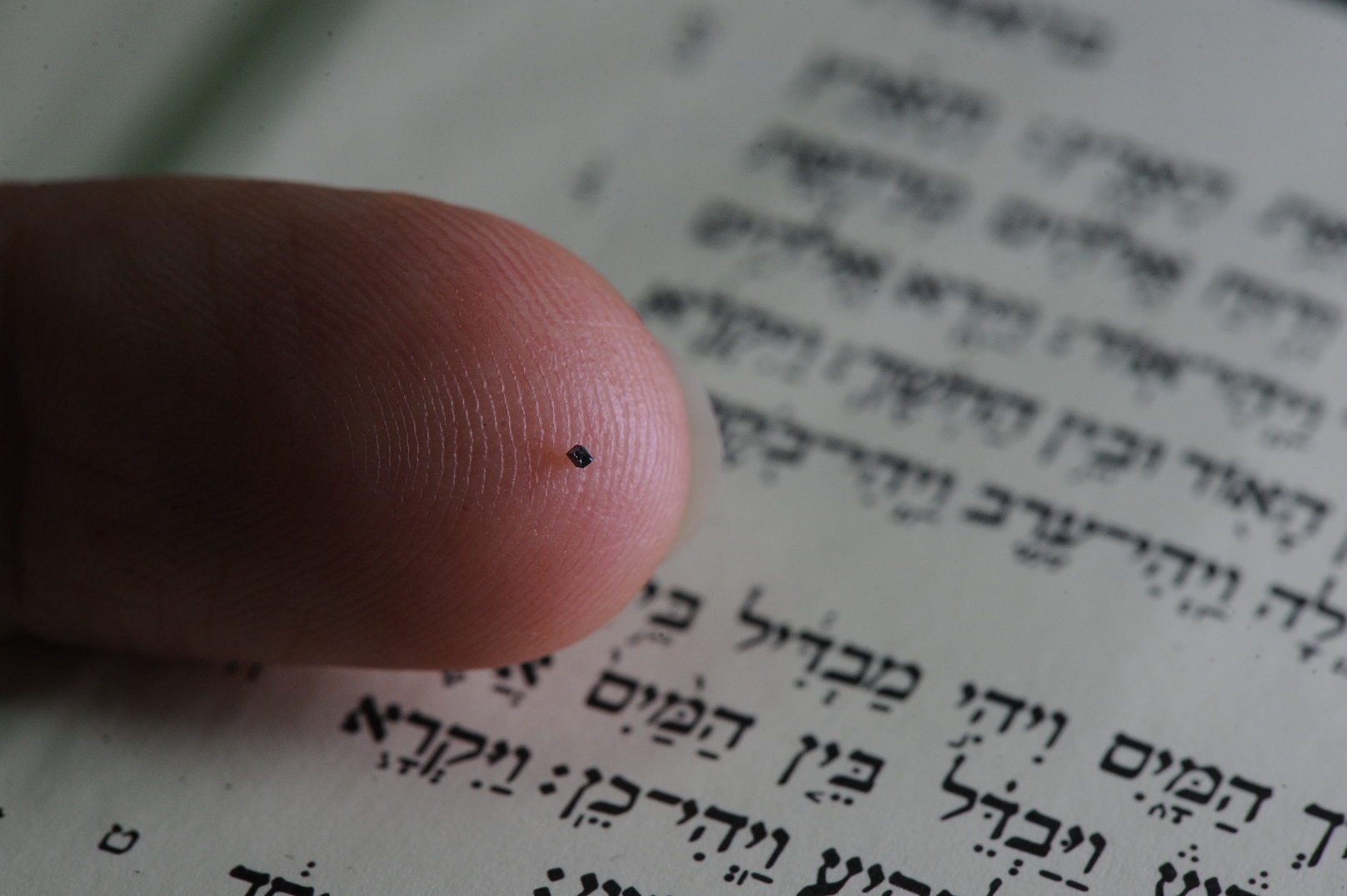The world’s tiniest Bible — the Nano Bible produced on a microchip at the Russell Berrie Nanotechnology Institute at the Technion-Israel Institute of Technology in Haifa, Israel – is the newest item in the collection of the Smithsonian Libraries in Washington, DC.
Smithsonian Secretary David J. Skorton accepted a Nano Bible from Technion President Peretz Lavie on October 30 for safekeeping in the Dibner Library of the History of Science and Technology at the National Museum of American History.
Engraved on a gold-plated silicon chip the size of a grain of rice, the biblical text consists of more than 1.2 million letters carved with a focused beam of gallium ions. The words are readable only when magnified 10,000 times.
“We are excited to enrich the Libraries’ collections with this marvelous gift, which marries one of the world’s oldest and most significant texts with one of the newest technologies of the 21st century,” said Nancy E. Gwinn, director of Smithsonian Libraries. “As one of our principal values is to share our collections with the public, it is appropriate that the only copy in the United States be located here, as part of the national collections.”
The Nano Bible can be viewed by the public by appointment; call 202-633-3872.
The first of two copies of the Nano Bible, made by Prof. Uri Sivan and Dr. Ohad Zohar at the Technion, was presented to Pope Benedict XVI during his visit to Israel in 2009.
“The Nano Bible exhibition is a fascinating confluence of history, culture, and cutting-edge science — where the Land of the Bible meets the Start-Up Nation,” said Lavie.
Fighting for Israel's truth
We cover what makes life in Israel so special — it's people. A non-profit organization, ISRAEL21c's team of journalists are committed to telling stories that humanize Israelis and show their positive impact on our world. You can bring these stories to life by making a donation of $6/month.





